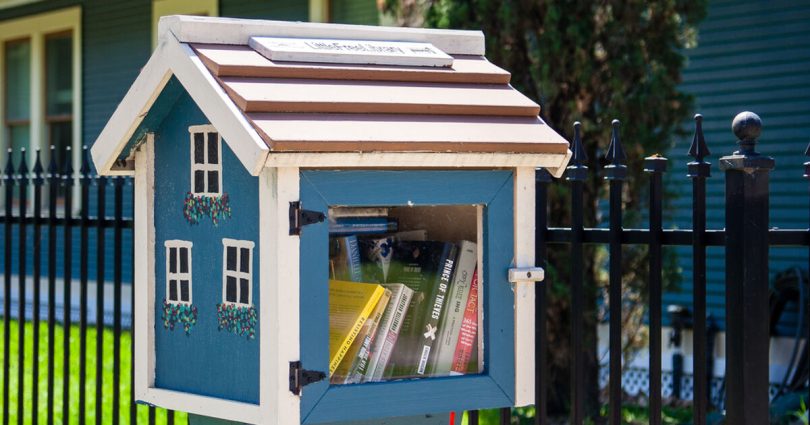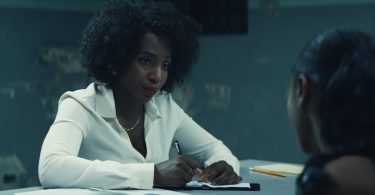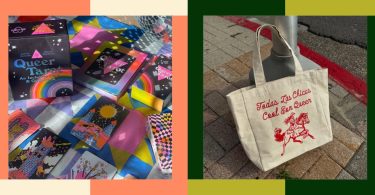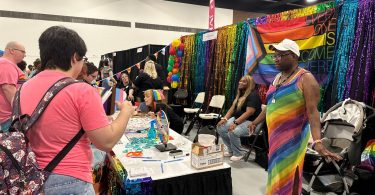The leader of a Utah “parents’ rights” group has suggested using a state anti-pornography law to prosecute people who offer banned books in Little Free Libraries, small public collections of borrowable books. The leader’s suggestion came after a state legislator said she planned on placing recently banned books into Little Free Libraries.
In late September, Utah state Rep. Sahara Hayes (D) posted an Instagram video in which she said, in commemoration of Banned Books Week, that she would place some books banned by local school districts into Little Free Libraries around the school district.
“In the past year, the legislature passed even more laws that make it easier to ban books in schools,” Hayes said in the video, noting that the state recently banned 13 titles from all public schools to “[protect] children from the harmful effects of illicit pornography.”
Stay connected to your community
Connect with the issues and events that impact your community at home and beyond by subscribing to our newsletter.
The books banned in various districts include LGBTQ+-inclusive titles such as Simon vs The Homo Sapiens Agenda, The Perks of Being a Wallflower, and The Color Purple as well as other well-known literary classics like I Know Why the Caged Bird Sings, The Handmaid’s Tale, and Catch 22.
Gesturing to a stack of books in the back of a car, Hayes said, “We hope you’ll come and find some and maybe read a banned book for yourself, see what all the fuss is about.”
In response, Brooke Stephens, a leader of Utah Parents United — a so-called parents’ rights group that supports book bans and opposes transgender-inclusive school policies — wrote in her book-banning Facebook group that Hayes had distributed a copy of Maia Kobabe’s Gender Queer: A Memoir, a graphic novel that anti-LGBTQ+ book banning advocates have repeatedly cited for its sexually explicit passages and suggestive illustrations.
“In Utah, it’s always been illegal to give children explicit content,” Stephens wrote. “[A] person who provides the Little Free Library on their private property could also be held accountable. Private property doesn’t mean you don’t need to follow the law.”
In her Facebook post, Stephens included an image showing a law against the distribution or exhibition of pornographic material by an adult is a third-degree felony punishable by a minimum fine of $1,000 and a minimum prison sentence of 30 days.
Stephens also suggested her Facebook followers vote for Hayes’ political opponent. Salt Lake City police told the news outlet Axios that they had not received complaints of Hayes’ book-sharing. Utah defense attorney Clayton Simms told KUTV that Hayes’ actions don’t appear to violate any laws.
“If you’re offering free copies of these books, people are free to choose whether they want to read them or not,” Simms said.
State Rep. Ken Ivory (R) said he thinks Hayes’ actions are “very potentially” against the law and questioned, “Is there no limit on how sexually graphic the content is that we give to children from kindergarten to 12th grade in public school?”
Regardless, Peter Bromberg, a policy advocate for the Utah Library Association, told the publication that Stephens’ threat could still intimidate volunteers who run Little Public Libraries.
“If you’re someone who runs a Little Free Library, you have to make the choice: ‘Am I going to put these things in there and take the chance’ [of a pornography charge],” Bromberg said.”Even having that levied against you as an accusation — forget if you can actually defend yourself in court. … Are you going to be targeted? Your address is public, your Little Free Library is public. Are you going to be vandalized? Are you going to be threatened?”
Subscribe to the LGBTQ Nation newsletter and be the first to know about the latest headlines shaping LGBTQ+ communities worldwide.
Don’t forget to share:







